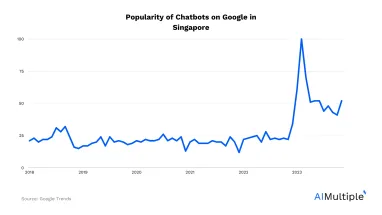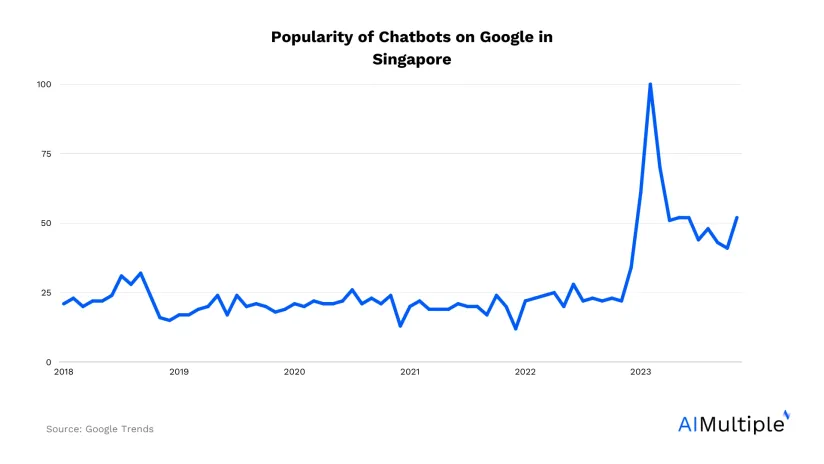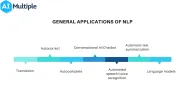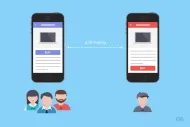Chatbot in Singapore: Top 7 Vendors & Use Cases in 2024


Customers at rate of %90 prefer interactive and immediate responses when engaging with an online business according to surveys about customer service.1 The complication occurs when website visitors and mobile app users expect real-time assistance 24/7, a complicated task for human support teams.
Bot builder platforms are focusing on this problem to help businesses automate most of their customer service. Enterprises can build a chatbot in Singapore by working with numerous chatbot companies that are based in Singapore or have offices in the region. In this article, we provide the top 7 companies that develop business chatbots in Singapore.
Top 7 vendors of chatbot in Singapore
| Vendor | Size | # of B2B reviews | # of employees | Whatsapp integration | Facebook integration | Conversational ads |
|---|---|---|---|---|---|---|
| IBM watsonx Assistant | Global | 451 | 300.000+ | ✅ | ✅ | ✅ |
| Microsoft Azure Bot Service | Global | 87 | 280.000+ | ✅ | ✅ | N/A |
| Haptik | Regional | 167 | 201-500 | ✅ | ✅ | ✅ |
| Yellow.ai | Regional | 137 | 1000-5000 | ✅ | ✅ | ✅ |
| REVE Chat | Regional | 27 | 11-50 | ✅ | ✅ | N/A |
| AiChat | Local | N/A | 11-50 | ✅ | ✅ | ✅ |
| Botbot.AI | Local | N/A | N/A | N/A | ✅ | N/A |
Table features:
Above we gathered the top 7 companies that provide chatbot services for businesses in the Singapore market. We provide both a comparative table and a review of each vendor.
While forming the table, we divided the vendors into 3 categories:
- Global conversational AI tech providers with offices in Malaysia (we selected 2 biggest enterprises in terms of their company size and global influence)
- Regional conversational AI tech providers serving for Malaysia
- Malaysia-based conversational AI agencies/chatbot providers
We used these criteria:
- The number of each vendor’s (and their chatbot solution’s) total reviews on the reputed B2B review websites such as G2, Capterra, TrustRadius
- The number of employees on the LinkedIn
- Integration capabilities on popular messaging apps like WhatsApp and Facebook Messenger
- The capability of offering conversational ads, which functions as redirecting the users from the ads on social media to the chatbot for more personalized marketing & sales
Global conversational AI/chatbot providers
1- IBM watsonx Assistant
IBM Watson Assistant is one of the premier chatbot vendors not only in Malaysia but also around the world.
Pros
- Watson Assistant can be deployed across various platforms, channels, and devices, providing a consistent user experience wherever your customers interact with your brand. 2
- Watson Assistant’s pre-trained content for various industries means it’s ready to provide industry-specific answers right out of the box, saving valuable time during the setup process.
- Watson Assistant is easy to implement and use. (Figure 1)
Figure 1. Source: G2 3

- Watson Assistant places a strong emphasis on user data privacy and provides robust controls for data handling, meeting high standards for data security.
- A unique offering of IBM Watson Assistant is its voice interaction capabilities. It can be integrated with telephony systems or digital voice channels, providing the same level of sophistication in voice interactions as in text.
Cons
- While Watson Assistant provides significant value, it’s pricing may be on the higher side for small businesses or startups with limited budgets.4 See Figure 2:
Figure 2. Source: G2

- While Watson Assistant can be integrated with a variety of other systems, this process can sometimes be complex and require a significant amount of development work.5
2- Microsoft Azure Bot Service
Pros
- Bots created using the Azure Bot Service can be integrated and deployed across a wide range of popular channels like Teams, Skype, Facebook Messenger, Slack, and others.6
- Azure Bot Service supports the Direct Line Speech Channel, enabling streamlined integration for speech-enabled experiences.
- For those who prefer a no-code/low-code approach, Azure Bot Service can be integrated with Microsoft Power Virtual Agents, allowing for easy bot creation.
Figure 3. Source: G27

Cons
- Depending on the scale of usage, Azure Bot Service could be more expensive than other bot platforms, particularly for small businesses or startups.
- Some users state that the customization and connection can create problems sometimes.
Figure 4. Source: G28

Figure 5. Source: G29

Regional conversational AI/chatbot providers
3- Yellow.ai
Pros
- Analytics insights for understanding user behavior 10
- Increases operational efficiency
- Ease of setup and use
Cons
- The ticket system can be problematic occasionally 11
- Hard to write custom scripts or integrate customized interfaces12
Figure 8. Pros and Cons of Yellow.ai according to users. Source: Capterra13

Local conversational AI/chatbot providers
4- REVE Chat
REVE Chat’s AI powered platform delivers automated customer support and sales conversions with chatbots.
We cannot list the pros and cons of REVE chatbot as it doesn’t have any reviews in the popular review platforms.
5- AiChat
AiChat develops chatbots for B2C areas such as:
- Retail
- Automotive
- Hospitality
- Pharmaceutical
- Education
- Financial institutes
We cannot provide objective pros and cons as there are no reliable customer reviews about AiChat. However, some of its features include:
- When the bot receives a new message, it proposes the most applicable responses to the representative. If the predictive confidence drops below a certain level, the representative has the opportunity to customize the response, and with each interaction, the bot continues to learn and improve.
- Proprietary South East Asia languages packages are designed to detect and understand slangs and short forms used in the local context.
- It automatically suggests corrections that are perfectly adapted to the industry context. Bot is trained to handle various spelling errors such as word breaks, slang, typo of names and brands and homonyms.
6- Botbot.AI
The niche industries that Botbot.AI serves include:
- Financial services institutions
- Back-offices of FMCG/pharmaceutical companies and HR departments
The chatbot is serving industries in the Southeast Asia, and it is fluent in:
- English
- Vietnamese
- Bahasa Indonesia
- Bahasa Melayu
We cannot compare the pros and cons of Botbot.AI chatbot as it doesn’t have any reviews in the popular review platforms.
Singapore chatbot examples/case studies
Singapore Government has been planning to adopt an intelligent chatbot since 2014. The government chatbot, Ak Jamie, developed since then and has been implemented across 70 government agency websites. Currently, it is multichannel, such as email, call centres, social apps. By adopting Ask Jamie, the Singapore government achieved 14:
- 50% reduction in citizen inquiries that would have previously gone to call centers
- Automated responses to 15 million questions from citizens within its first 5 years
– Marina Bay Sands is a luxury resort in Singapore. The resort aimed to enhance the effectiveness of its interactions on Messenger to better respond to users’ inquiries, while also boosting visibility of its retail and dining options. This was especially challenging during peak seasons. During the bustling Christmas season, the resort partnered with a firm to create a chatbot on Facebook Messenger. This chatbot was designed to handle common inquiries and offer suggestions. With the use of this chatbot, the resort achieved 15:
- 8,3x increase in new messaging connections
- 26x growth in daily active users
- 38x growth in the number of views for shopping and dining-related content
If you are not clear about a business chatbot’s use cases and benefits, please read on:
What are the use cases of business chatbots in Singapore?
1- Customer services
Businesses can use chatbots in various customer support operations, such as to:
- Provide instant responses to frequently asked questions
- Troubleshoot common problems
- Guide customers through the buying process step-by-step
This can help to reduce the workload for customer service reps, increase customer satisfaction and create better customer service by providing quicker responses. Also, the customer support team can work on more complex service inquiries.
Most customer service software integrates chatbots for omnichannel support. Learn more about this from our vendor selection guide on customer service software.
2- Banking and finance
Banks and financial institutions can use chatbots to provide customers with information about their accounts, transaction history, etc. This could also include alert notifications for suspicious activity or updates on the stock market.
3- Insurance
Insurance companies can use chatbots for a variety of purposes.
For policyholders the chatbot can:
- Provide policy details
- Process claims
- Send reminders for premium payments
- Answer common queries about policy coverage and terms
For prospective customers, it can:
- Provide information about different insurance products
- Offer quotes
- Guide users through the purchase process
It’s a great way to increase operational efficiency and customer satisfaction simultaneously.
4- Logistics
In the logistics industry, chatbots can:
- Provide real-time updates about shipment status
- Answer queries about shipping fees and customs
- Handle bookings
- Manage complaints or issues
The chatbot can also coordinate between different parties in the supply chain to ensure seamless operation. Given the global nature of logistics and the need for quick, accurate information, a chatbot can greatly improve the customer experience in this industry.
5- Marketing and advertising
Businesses can use chatbots to send promotional messages, offers, and discounts to customers. Marketing teams and sales representatives can also use chatbots to collect customer information, which can be used to create more personalized marketing campaigns.
You can check our marketing chatbots and sales chatbots articles for more information.
6- Retail and e-commerce
Many businesses in Singapore are based online and could use chatbots to automate customer inquiries about orders, shipping, returns, etc. Chatbots could also be programmed to provide product recommendations based on customer preferences.
You can learn more about retail chatbots and conversational commerce from our articles.
7- Travel, restaurant & hospitality
Travel agencies, airlines, and hotels could use chatbots to:
- Handle bookings
- Provide check-in information
- Send flight updates
- Answer common customer inquiries
You can check our travel chatbots and hospitality chatbots articles for more information.
FAQ
What is a business chatbot?
A business chatbot is a form of artificial intelligence software designed to interact with humans in their natural languages, with the help of machine learning and natural language processing technologies. These interactions commonly occur via text or voice, through:
-Messaging apps (such as Facebook Messenger chatbot, WhatsApp chatbot, etc.)
-Websites
-Mobile apps
-Sometimes through the phone
What are the benefits of chatbots for businesses?
Chatbots offer several benefits for businesses. Here are a few of them:
Enhanced customer service: Chatbots can provide instant responses to common customer queries, reduce wait times and increase customer satisfaction. They can also operate 24/7, ensuring constant customer support.
Increased efficiency: By automating routine tasks, chatbots can free up human resources to handle more complex issues. This improves overall business efficiency and can lead to cost savings.
Scalability: A single chatbot can handle multiple conversations simultaneously. This means a business can scale up its customer service operations without a corresponding increase in human resources.
Feedback and data collection: Businesses can use chatbots to collect customer feedback and gain valuable insights. The customer data collected can be used to improve products and services, and to make more informed business decisions.
What is a WhatsApp chatbot?
A WhatsApp chatbot is a specific type of business chatbot that interacts with customers via WhatsApp, one of the world’s most popular messaging apps.
WhatsApp chatbots can fulfill most of the tasks a chatbot does, such as answering customer inquiries, providing product information, or booking appointments, all within the WhatsApp platform.
Using WhatsApp allows businesses to engage with their customers where they are already spending time, potentially leading to improved customer satisfaction and increased sales.
What are the benefits of WhatsApp chatbots over other chatbots?
WhatsApp chatbots offer several benefits for businesses. If your business aims one or some of these benefits specifically, then it might be a better decision to choose a WhatsApp chatbot or include one into your other chatbot solutions.
Customer engagement: WhatsApp chatbots can be programmed to send personalized messages and offer tailored product recommendations. This can help to increase customer engagement and loyalty.
Lead generation and conversion: WhatsApp chatbots can play a key role in the sales funnel. They can qualify leads through initial interactions, follow up on potential customers, and even complete sales transactions.
Reach: WhatsApp has over 2 billion users globally, so using a WhatsApp chatbot opens up a large potential audience for businesses. In certain markets, like India, Singapore, and many other countries, WhatsApp is the leading messaging app, making it a particularly effective channel for customer interaction.
End-to-end encrypted conversations: WhatsApp provides end-to-end encryption for all its messages, making it a secure platform for sensitive business communication. While this doesn’t mean other platforms aren’t secure, WhatsApp’s universally applied encryption is a distinct feature.
Delivery of rich media content: While many chatbot platforms support rich media, the familiarity and ease of use of WhatsApp’s interface might make it particularly effective for delivering media content to customers. This could include product images, videos, audio messages, or documents.
If you have questions or need help in finding vendors, don’t hesitate to contact us:
External Links:
External Links
- 1. “Live Chat Exposes a Fatal Flaw in Your Go-to-Market” Hubspot, Accessed 16 November 2023.
- 2. “IBM Watsonx Assistant Reviews” G2, Accessed 16 November 2023.
- 3. “IBM Watsonx Assistant Reviews” G2, Accessed 16 November 2023.
- 4. “IBM Watsonx Assistant Reviews” G2, Accessed 16 November 2023.
- 5. “IBM Watsonx Assistant Reviews” G2, Accessed 16 November 2023.
- 6. “Azure Bot Service Reviews” G2, Accessed 16 November 2023.
- 7. “Azure Bot Service Reviews” G2, Accessed 16 November 2023.
- 8. “Azure Bot Service Reviews” G2, Accessed 16 November 2023.
- 9. “Azure Bot Service Reviews” G2, Accessed 16 November 2023.
- 10. “Yellow.ai Reviews” G2,Accessed 16 November 2023.
- 11. “Yellow.ai Reviews” Capterra,Accessed 16 November 2023.
- 12. “Yellow.ai Reviews” G2,Accessed 16 November 2023.
- 13. “Yellow.ai Reviews” Capterra,Accessed 16 November 2023.
- 14. “Supporting the Singapore Government’s Smart Nation initiative, Sabio enables digital Ask Jamie.” Sabio Group, Accessed 22 June 2023.
- 15. “Marina Bay Sands Chatbot | Singapore First Hotel Chatbot.” AiChat. Accessed 22 June 2023.

Cem has been the principal analyst at AIMultiple since 2017. AIMultiple informs hundreds of thousands of businesses (as per similarWeb) including 60% of Fortune 500 every month.
Cem's work has been cited by leading global publications including Business Insider, Forbes, Washington Post, global firms like Deloitte, HPE, NGOs like World Economic Forum and supranational organizations like European Commission. You can see more reputable companies and media that referenced AIMultiple.
Throughout his career, Cem served as a tech consultant, tech buyer and tech entrepreneur. He advised businesses on their enterprise software, automation, cloud, AI / ML and other technology related decisions at McKinsey & Company and Altman Solon for more than a decade. He also published a McKinsey report on digitalization.
He led technology strategy and procurement of a telco while reporting to the CEO. He has also led commercial growth of deep tech company Hypatos that reached a 7 digit annual recurring revenue and a 9 digit valuation from 0 within 2 years. Cem's work in Hypatos was covered by leading technology publications like TechCrunch and Business Insider.
Cem regularly speaks at international technology conferences. He graduated from Bogazici University as a computer engineer and holds an MBA from Columbia Business School.
To stay up-to-date on B2B tech & accelerate your enterprise:
Follow on

Comments
Your email address will not be published. All fields are required.